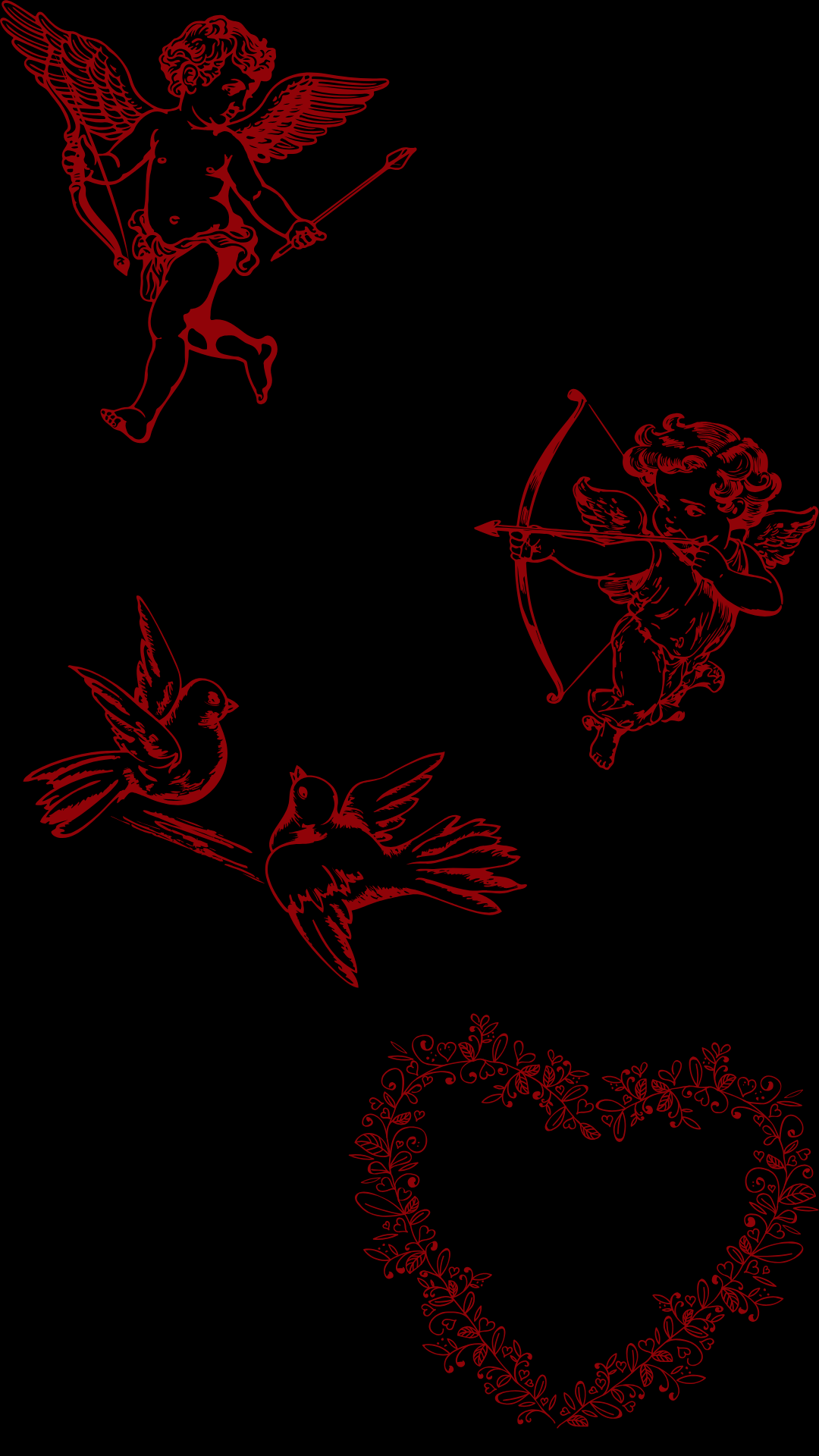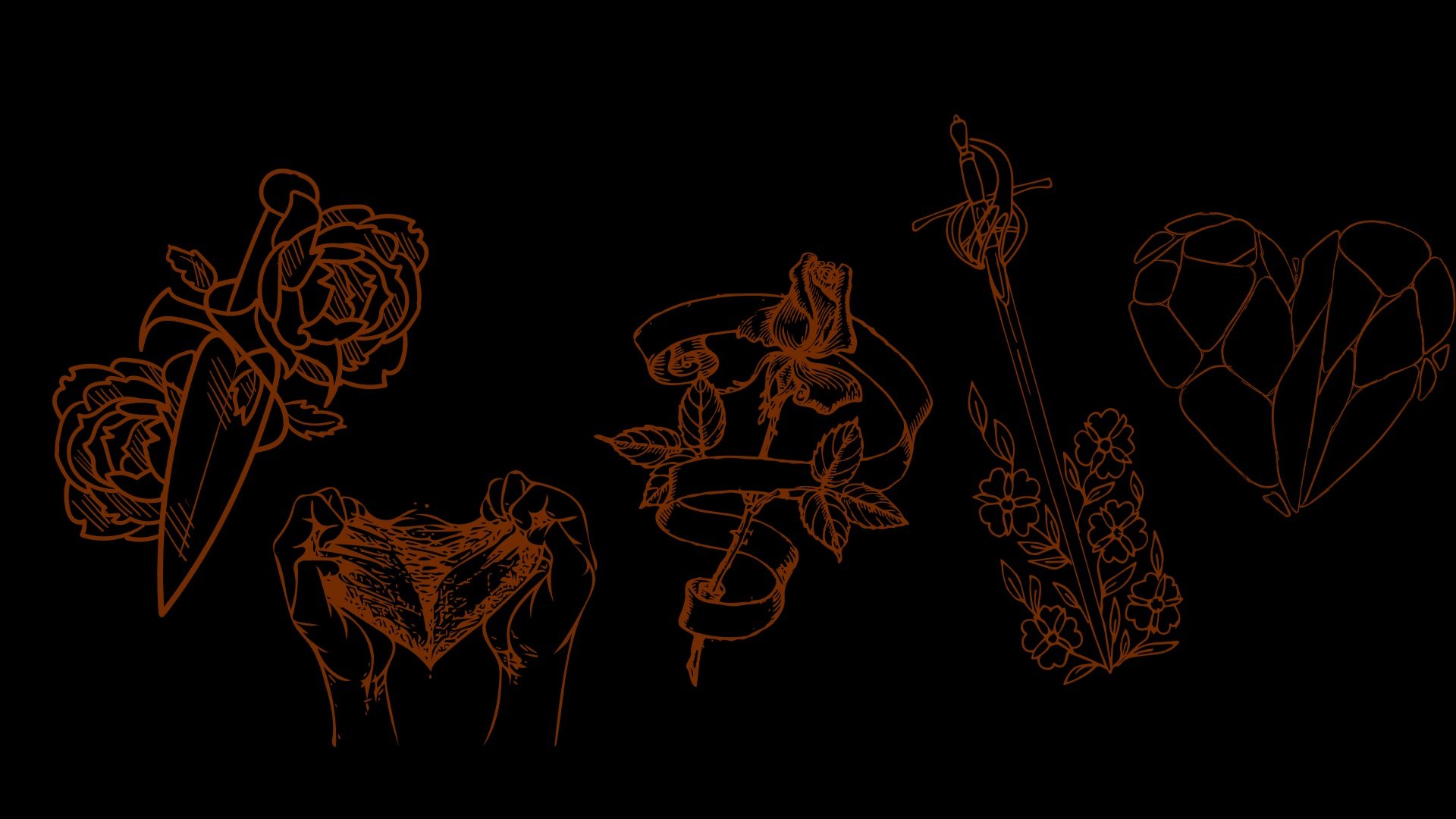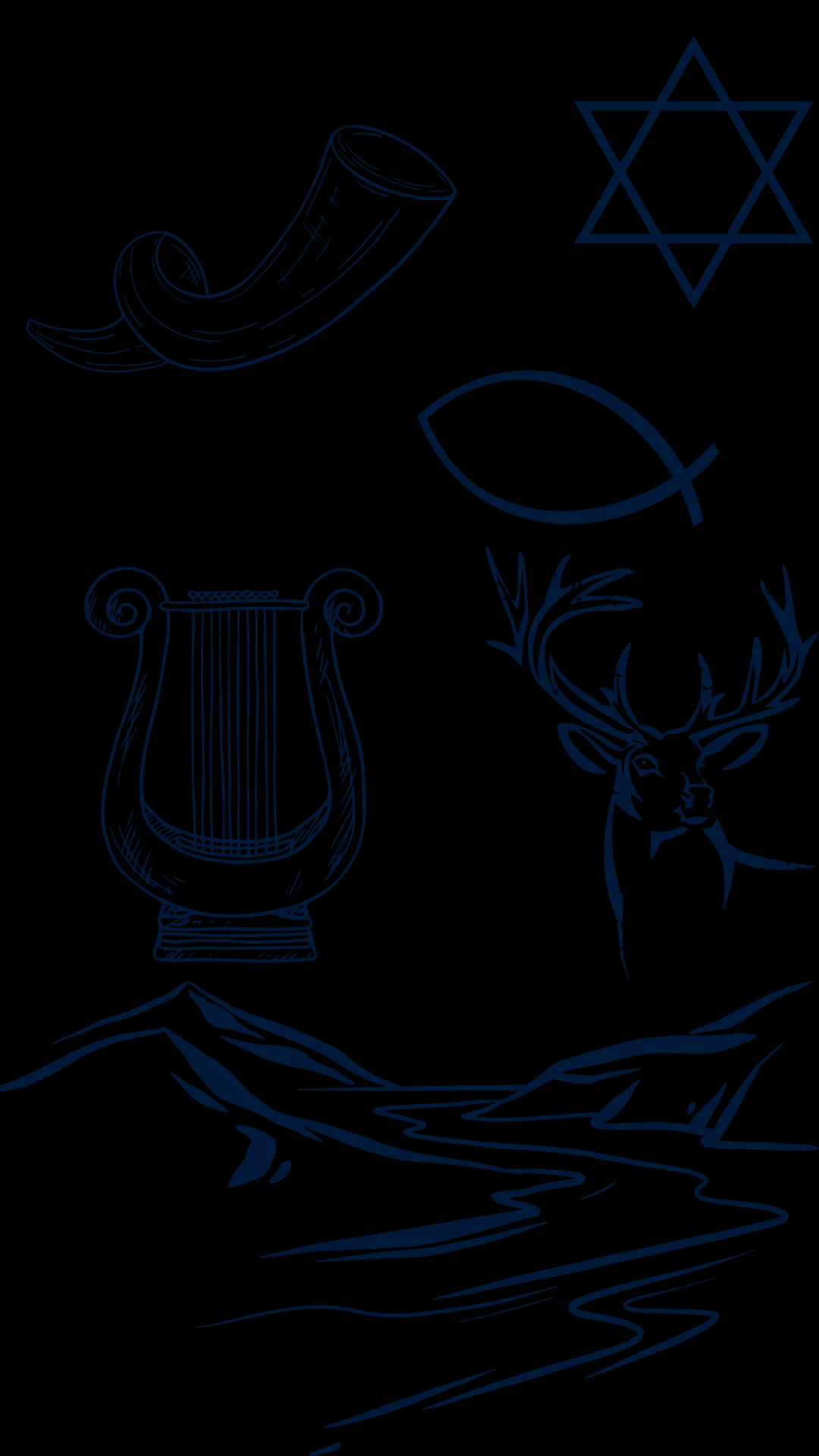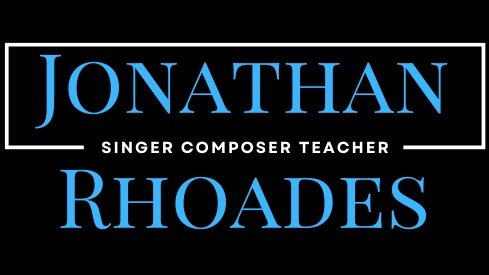
From Longing to Belonging
This recital was carefully crafted to parallel Ralph Vaughan Williams’ Songs of Travel, which Jonathan performed in its entirety in 2020. Beginning in a similarly tumultuous way, this recital tells the story of a man lost in desire, self-indulgence, and longing for love. Upon losing his love to another, he journeys into the depths of nature, where he discovers a true sense of belonging through worship and service to God.
From Longing to Belonging will be presented on April 5th, 2025 at 5:30pm in Harris Recital Hall on the University of Memphis Campus.
Scroll down to see the program.

Chansons gaillardes (1926)
-
Francis Poulenc (1899-1963), born in 1899 to aristocrats, was a renowned composer of French music in the 20th century, including the hit opera Dialogues des Carmélites and his concert work Gloria. He became well known for his musical charm and wit as he fell in love with “adorable bad music.” He chose to write in his own neoclassical style, avoiding the advanced musical mathematics that his contemporaries sought. In 1926, he wrote his Chansons gaillardes, which premiered with himself on the piano and Pierre Bernac as the singer. This single performance launched Bernac’s career as he became Poulenc’s choice of baritone voice and advisor in writing for vocal lines.
In Poulenc’s Journal de mes mélodies, he wrote, “I am fond of this collection where I tried to show that outright obscenity can adapt itself to music. I detest smutty suggestiveness. The accompaniments are very difficult but well-written, I think. The texts were found in an anthology of songs of the 17th century (an old edition).“ (Translated by Winifred Radford).
The texts used by Poulenc were written by several anonymous 17th-century poets, compiled in the third volume of Anthologie Françoise and the fourth supplementary volume Choix de chansons joyeuses by Jean-Baptiste Pierre Antoine de Monet, Chevalier de Lamarck. Most experts agree that these were likely first written down by monks but were recited by minstrels. Jokes, innuendo, and double entendres are paired with disjointed melody and neoclassical form, with each song employing a different vignette. While already vulgar, additional themes can be revealed by interpreting the text through a ribald lens. To drive this point home to his students in masterclasses, Bernac would turn his back to the audience and connect with the singer as two men in conversation.
As you listen to the Chansons gaillardes, listen to the sound of comedy and desire existing in the same space as you enjoy Poulenc’s creative musical language which highlights the complex human experience of love.
-
Ma maîtresse est volage,
Mon rival est heureux;
S'il a son pucelage,
C'est qu'elle en avait deux.
Et vogue la galère,
Tant qu'elle pourra voguer.
My mistress is unfaithful,
My rival is happy;
If he took her virginity,
It is because she had two.
So sails the galley,
As long as it can sail.
Translation completed by Jonathan Rhoades, 2024. -
Les rois d'Egypte et de Syrie,
Voulaient qu'on embaumât leurs corps,
Pour durer plus longtemps morts.
Quelle folie!
Buvons donc selon notre envie,
Il faut boire et reboire encore.
Buvons donc toute notre vie,
Embaumons-nous avant la mort.
Embaumons-nous;
Que ce baume est doux.
The kings of Egypt and of SyriaWanted to embalm their bodies,
Wishing to last eternally dead.
What folly!
Let us drink to our envy,
We must drink and drink again.
Let us drink then throughout our life,
Let us embalm ourselves before death.
Let us embalm ourselves;
For that balm is sweet.
Translation completed by Jonathan Rhoades, 2024. -
Vous êtes belle come un ange,
Douce comme un petit mouton;
Il n'est point de coeur, Jeanneton,
Qui sous votre loi ne se range.
Mais une fille sans têtons
Est une perdrix sans orange.
You are as beautiful as an angel,
Sweet as a lamb;
There is no heart, Jeanette,
That does not fall under your law.
But a girl without breasts
Is a partridge without orange.
Translation completed by Jonathan Rhoades, 2024. -
Je jure, tant que je vivrai,
De vous aimer, Sylvie.
Parques, qui dans vos mains tenez
Le fil de notre vie,
Allongez, tant que vous pourrez,
Le mien, je vous en prie.
I swear, as long as I live,To love you, Sylvie.
Fates, who in your hands hold
The thread of our life,
Lengthen, as long as you can,
My thread, I beg of you.
Translation completed by Jonathan Rhoades, 2024. -
Je suis tant que dure le jour
Et grave et badin tour à tour.
Quand je vois un flacon sans vin,
Je suis grave, je suis grave,
Est-il tout plein, je suis badin.
Je suis tant que dure le jour
Et grave et badin tour à tour.
Quand ma femme me tient au lit,
Je suis sage, je suis sage,
Quand ma femme me tient au lit,
Je suis sage toute la nuit.
Si catin au lit me tient
Alors je suis badin
Ah! belle hôtesse, versez-moi du vin
Je suis badin, badin, badin.
I am as long as the day lastsAnd serious and playful in turn.
When I see a bottle without wine,
I am serious, I am serious,
If it is full, I am playful.
I am as long as the day lasts
And serious and playful in turn.
When my wife holds me in bed,
I am wise, I am wise,
When my wife holds me in bed,
I am wise all night.
If a prostitute in bed holds me
Then I am playful.
Ah! beautiful hostess, pour me some wine
I am playful, playful, playful.
Translation completed by Jonathan Rhoades, 2024. -
Au dieu d'Amour une pucelle
Offrit un jour une chandelle,
Pour en obtenir un amant.
Le dieu sourit de sa demande
Et lui dit: Belle en attendant
Servez-vous toujours de l'offrande.
To the god of love, a virginOne day offered a candle,
To obtain a lover.
The god smiled at her
And told her, “Beautiful, while waiting,
Always use your offering.”
Translation completed by Jonathan Rhoades, 2024. -
Il fut s'aimer toujours
Et ne s'épouser guère.
Il faut faire l'amour
Sans curé ni notaire.
Cessez, messieurs, d'être épouseurs,
Ne visez qu'aux tirelires,
Ne visez qu'aux tourelours,
Cessez, messieurs, d'être épouseurs,
Ne visez qu'aux cœurs
Cessez, messieurs, d'être épouseurs,
Holà messieurs, ne visez plus qu'aux cœurs.
Pourquoi se marier,
Quand la femme des autres
Ne se font pas prier
Pour devenir les nôtres?
Quand leurs ardeurs,
Quand leurs faveurs,
Cherchent nos tirelires,
Cherchent nos tourelours,
Cherchent nos cœurs?
We always love each other
And hardly ever marry.
We must make love
Without priest nor notary.
Cease, sirs, from being bridegrooms,
Aim only at treasures,
Aim only at pleasures,
Cease, sirs, from being bridegrooms,
Aim only at hearts,
Stop, sirs, from being bridegrooms,
Hey sirs, aim only at hearts.
Why marry
When other men’s wives
Do not need to be asked twice
To become ours?
When their passions,
When their favors,
Seek our treasures,
Seek our pleasures,
Seek our hearts?
Translation completed by Jonathan Rhoades, 2024. -
Avec une si belle main,
Que servent tant de charmes,
Que vous tenez du dieu malin,
Bien manier les armes.
Et quand cet Enfant est chagrin
Bien essuyer ses larmes.
With such a beautiful hand,Which so many charms serve,
Which you hold from the evil god,
Wield the weapons well.
And when this Child is sad
Wipe away his tears well.
Translation completed by Jonathan Rhoades, 2024.

“Ah, per sempre io ti perdei...Bel sogno beato” from I Puritani (1835)
-
Also known for his art songs and other operatic successes like Norma and I Capulati e i Montecchi, Vincenzo Bellini (1801-1835) had a musical style that embodies the bel canto style: writing for the voice to create beautiful lines of melody and cadenzas. He premiered I puritani in 1835 at the Théâtre Italien in Paris in hopes to bring the Bel canto tradition of Italian opera to France. In a letter to Francesco Florimo, he wrote, “The French have all gone mad; there were such noises and such shouts that they themselves were astonished at being so carried away… In a word, my dear Florimo, it was an unheard of thing, and since Saturday, Paris has spoken of it in amazement.”
Set during the English Civil War, this opera features a love triangle between Elvira (a Puritan woman), Riccardo (a Puritan soldier to whom Elvira’s hand in marriage has been promised by her father), and Arturo (a Royalist soldier that Elvira has promised herself to). Early in Act 1, Riccardo discovers Elvira’s love for Arturo and sings of his love for Elvira and despair to his confidant, Bruno.
Carlo Pepoli (1796-1881) was an Italian politician, journalist, and poet that Bellini chose to write the libretto for I puritani. Living in exile in France after the failed Carbonari uprising in 1831, this libretto became his most well-known accomplishment. Bellini wrote of Pepoli’s inexperience and absurd rules. Bellini only required one thing from Pepoli’s words: “The opera must draw tears, terrify people, make them die through singing.”
As you hear this cut connecting Riccardo’s arias from Act 1, notice the shift in tempo and feeling from the cavatina (slower and more lyrical) to the cabaletta (faster and virtuosic) as this showcases a singer’s ability maintain breath support and balanced chiaroscuro (brightness and darkness) through long melodic lines, melismatic passages, and cadenzas.
-
Or dove fuggo io mai?
Dove mai celo gli orrendo affanni miei?
Come quei canti mi risuonano all’alma amari pianti!
O Elvira, o mio sospir soave,
per sempre io ti perdei!
Senza speme ed amor,
in questa vita or che rimane a me?
Ah, per sempre io to perdei,
Fior d’amore, o mia speranza;
Ah! La vita che m’avanza sarà piena di dolor!
Quando errai per anni ed anni
in poter della ventura,
io sfidai sciagura e affanni
nella speme del tuo amor.
Bel sogno beato
di pace e contento,
o, cangia il mio fato,
o, cangia il mio cor.
O! Come è tormento
nel dì del dolore
la dolce memoria
d'un tenero amor.
Wherever can I hide from the cruel suffering of mine?
How those songs echo within my soul as bitter tears!
Oh Elvira, oh my gentle sigh,
I have lost you forever!
Without hope or love,
what is there left for me now in this life?
Ah, I have lost you forever,
flower of love,oh my hope;
Ah! The life that is left to me will be filled with sorrow!
When I wandered for years and years
in the sway of fortune,
I defied misfortune and cares
in the hope of your love.
Beautiful happy dream
of peace and contentment,
oh, change my fate,
oh, change my heart.
Oh! How tormenting
on the day of sorrow
is the sweet memory
of a tender love.
Translation © Nico Castel author of: Italian Belcanto Libretti Volume 2 (Leyrle)

Psalms
-
“Make a joyful noise unto the Lord, all ye lands. Serve the Lord with gladness: come before His presence with singing.” - Psalm 100:1-2
The Book of Psalms is the written record of 150 poems, which are often set to music, and that are at the heart of Jewish and Christian beliefs. These Psalms capture the full range of human emotions from the heart of ancient Israelite King David and other poets - lamentation, longing, praise, thanksgiving, prayerfulness, and trust. Sung in the Temple in Jerusalem, these ancient hymns served as an integral part of worship for the faithful Israelites and have continued to inspire believers and faithful artists today.
Tonight’s performance will be the partial world premiere of an original work by myself, showcasing two of the Psalms that are already completed: Psalm 42 and Psalm 133. These new settings capture an urgent longing for God and joyous belonging in a faithful community.
Psalm 42, the inspiration for Palestrina’s Sicut Cervus, is a powerful cry out of a desire to find God. The poetry compares the soul’s desire for God to a deer in search of water - refreshing, necessary to sustain life, and something that brings peace. The text stands in defiance of the enemies of Israel, who mockingly ask “where is thy God?” by responding “I shall yet praise Him.” In this setting, I hope to balance despair and faith, mirroring the emotional depth of the Psalm through a contemplative accompaniment that parodies two hymns (Awake, My Soul, in Joyful Lays and My Hope is Built on Nothing Less), and a melody that prevents a true resolution on a perfect authentic cadence.
Psalm 133 is a short Psalm at just three verses long, but it contains a stunning celebration of unity among the ancient Israelites. This evokes the joy of shared peace and like-minded worship. Imagery like the anointing of Aaron that flowed down his beard and the dew of Mount Hermon show God’s abundant blessings for His ancient followers. This song captures the excited and sacred nature of communal faith with constant motion between the melody and the piano, grand leaps in the melody, chordal planing, and an ending emphasis on “unity”.
Through these two settings, I hope to connect ancient worship with contemporary music, inviting all to experience the timeless faith and great emotions of the Psalms together in a new and profound way.
-
1 As the deer panteth after the water brooks, so panteth my soul after thee, O God.
2 My soul thirsteth for God, for the living God: when shall I come and appear before God?
3 My tears have been my meat day and night, while they continually say unto me, Where is thy God?
4 When I remember these things, I pour out my soul in me: for I had gone with the multitude, I went with them to the house of God, with the voice of joy and praise, with a multitude that kept holyday.
5 Why art thou cast down, O my soul? and why art thou disquieted in me? hope thou in God: for I shall yet praise him for the help of his countenance.
6 O my God, my soul is cast down within me: therefore will I remember thee from the land of Jordan, and of the Hermonites, from the hill Mizar.
7 Deep calleth unto deep at the noise of thy waterspouts: all thy waves and thy billows are gone over me.
8 Yet the Lord will command his lovingkindness in the day time, and in the night his song shall be with me, and my prayer unto the God of my life.
9 I will say unto God my rock, Why hast thou forgotten me? why go I mourning because of the oppression of the enemy?
10 As with a sword in my bones, mine enemies reproach me; while they say daily unto me, Where is thy God?
11 Why art thou cast down, O my soul? and why art thou disquieted within me? hope thou in God: for I shall yet praise him, who is the health of my countenance, and my God.
-
1 Behold, how good and how pleasant it is for brethren to dwell together in unity!
2 It is like the precious ointment upon the head, that ran down upon the beard, even Aaron's beard: that went down to the skirts of his garments;
3 As the dew of Hermon, and as the dew that descended upon the mountains of Zion: for there the Lord commanded the blessing, even life for evermore.

Five Mystical Songs (1911)
-
“Before going any further, may we take it that the object of art is to obtain a partial revelation of that which is beyond human senses and human faculties – of that, in fact, which is spiritual.” - Ralph Vaughan Williams
Ralph Vaughan Williams (1872-1958) is well known for his choral masterworks and church music, including Dona Nobis Pacem, Sea Symphony, and his setting of All Creatures of Our God and King. He was raised in the Anglican church and much of his music was written for use throughout the liturgical calendar.
George Herbert (1593-1633) was a clergyman in the Church of England and poet who would transcend time and influence other great poets, including Samuel Taylor Coleridge, Ralph Waldo Emerson, Emily Dickinson, T.S. Eliot, and others. He was widely regarded as someone who fervently served at “God’s Altar” and whose devotion and obedience was considered remarkable by his contemporaries. His devotion was seen as harmonious at a time of increasing divisiveness, as he believed faith brought answers to the questions facing English society.
Originally premiered as a choral cantata at the Three Choirs Festival in Worcester, England in 1911, this uplifting work tells the story of Easter, celebrates Christ’s resurrection, and calls the listeners to reflect on repentance, hope, and spiritual awakening. There are also repeated references to the Trinity, including the first four songs containing three verses each.
Easter opens the cycle with an explosion of joy, with the accompaniment playing triplets throughout much of the song to represent the ever-present Trinity in our lives. The first song states “all music is but three parts vied,” drawing a comparison between the individual pitches in chords of music work to create something beautiful and how the three members of the Trinity (Father, Son, and Holy Spirit) work together to advance the Kingdom of God.
I Got Me Flowers explores different emotions, from introspection to thanks and praise. While much gentler than the opening, there is appreciation for God’s gifts which enhances the primary sense of joy.
Love bade me welcome is a meditation on acceptance of God’s love despite our unworthiness of Jesus’ sacrifice. This serves as the most delicately composed of the cantata as the harmonies and texture were designed to bring the listener into the perspective of the singer.
The Call, with a memorable melody, is also featured in several hymnals in a slightly simplified version. This song invites the listener to respond to the sacrifice of Jesus and invite the Holy Spirit to dwell within our hearts. In this text, Jesus is referred to with several names, revealing how He moves in our lives in various ways.
Antiphon brings the cantata to a climactic finish, calling the listener to resound with praise and surrounding the listener with references to the Trinity in three ways: it opens with three motifs in the accompaniment, repeats the refrain three times, and the final refrain repeats” My God and King” three times, with the final time separated by the final statement of “Let all the world in every corner sing”.
Five Mystical Songs showcases Vaughan Williams’ expertise in blending poetry and music into an elaborate proclamation of faith and praise. As you listen to the cantata, enjoy the reverent text and beautiful music that celebrates renewal and love in the Easter season.
-
Rise heart; thy Lord is risen. Sing His praise
Without delays,
Who take thee by the hand, that thou likewise
With him, mayst rise:
That, as his death calcined thee to dust,
His life may make thee gold, and much more just.
Awake, my lute, and struggle for thy part
With all thy art.
The cross taught all wood to resound his name,
Who bore the same.
His stretched sinews taught all strings, what key
Is best to celebrate this most high day.
Consort both heart and lute, and twist a song
Pleasant and long:
Or since all music is but three parts vied
And multiplied;
O let thy blessed Spirit bear a part,
And make up our defects with his sweet art.
-
I got me flowers to strew thy way;
I got me boughs off many a tree:
But thou wast up by break of day,
And brought'st thy sweets along with thee.
The Sunne arising in the East.
Though he give light, and th'East perfume;
If they should offer to contest
With thy arising, they presume.
Can there be any day but this,
Though many sunnes to shine endeavour?
We count three hundred, but we miss:
There is but one, and that one ever.
-
Love bade me welcome: yet me soul drew back,
Guilty of dust and sin.
But quick-eyed Love, observing me grow slack
From my first entrance in,
Drew nearer to me, sweetly questioning,
If I lack’d any thing.
A guest, I answer’d, worthy to be here:
Love said, “You shall be he.”
I the unkind, ungrateful? Ah, my dear,
I cannot look on thee.
Love took my hand, and smiling did reply,
Who made the eyes but I?
Truth, Lord, but I have marr’d them: let my shame
Go where it doth deserve.
And know you not, says Love, who bore the blame?
My dear, then I will serve.
You must sit down, says Love, and taste my meat.
So I did sit and eat.
-
Come, my Way, my Truth, my Life;
Such a Way as gives us breath,
Such a Truth as ends all strife,
Such a Life as killeth death.
Come, my Light, my Feast, my Strength;
Such a Light as shows a feast.
Such a Feast as mends in length.
Such a Strength as makes his guest.
Come, my Joy, my Love, my Heart;
Such a Joy as non can move,
Such a Love as none can part,
Such a Heart as joys in love.
-
Let all the world in every corner sing,
My God and King.
The heavens are not too high,
His praise may thither fly:
The earth is not too low,
His praises there may grow.
Let all the world in every corner sing,
My God and King.
The Church with Psalms must shout,
No door can keep them out:
But above all, the heart
Must bear the longest part.
Let all the world in every corner sing,
My God and King.

“The Trumpet Shall Sound” from Messiah (1741)
-
Messiah is one of the greatest musical works in history and is the most performed work ever. This is due to the fact that it gained instant popularity in England upon its debut in 1742 and that it brought sacred music outside of the church. It has become a widely performed work throughout the Advent and Eastertide seasons across the world with its themes of divine promise, hope, and salvation.
Written by George Friderich Handel (1685-1759) and librettist Charles Jennens (1700-1773), this oratorio tells the story of Christ in three parts in a reference to the Trinity: the birth of Christ and revelation of God’s plan for redemption, Jesus’ sacrifice and resurrection, and the redemption of humanity and victory over death. Towards the end of the work, The Trumpet Shall Sound serves to celebrate the resurrection of the dead at the final trumpet sound as referenced in 1 Corinthians 15:51-53 (KJV):
51 Behold, I shew you a mystery; We shall not all sleep, but we shall all be changed,
52 In a moment, in the twinkling of an eye, at the last trump: for the trumpet shall sound, and the dead shall be raised incorruptible, and we shall be changed.
53 For this corruptible must put on incorruption, and this mortal must put on immortality.
Messiah features one of the earliest uses of the “die letzte Posaune,” or “the last trumpet”. This is emblematic of the biblical prophecy which claims that the faithful dead will rise at the sound of the last trumpet to live in the New Jerusalem. The Trumpet Shall Sound is perhaps the most direct reference to this idea as most composers following him chose to reference this through the use of various brass instruments in masses and other large sacred works.
The Trumpet Shall Sound is a “da capo aria”: it opens with an A section, follows with a contrasting B section, and returns to the A section. This allows for contrasting themes in music and expression. During the Baroque period, ornamentation was a common way to enhance the text if a text is repeated. Singers choose to ornament texts by employing trills, runs, and other embellishments to showcase their skills and interpretation.
As you listen to The Trumpet Shall Sound, listen for the elaborate text painting and joyous ornamentation that celebrates the return of Christ and the beginning of eternal life with Him.
-
Behold, I tell you a mystery; we shall not all sleep, but we shall all be changed,
in a moment, in the twinkling of an eye, at the last trumpet. The trumpet shall sound, and the dead shall be raised incorruptible, and we shall be changed.
For this corruptible must put on incorruption, and this mortal must put on immortality.

